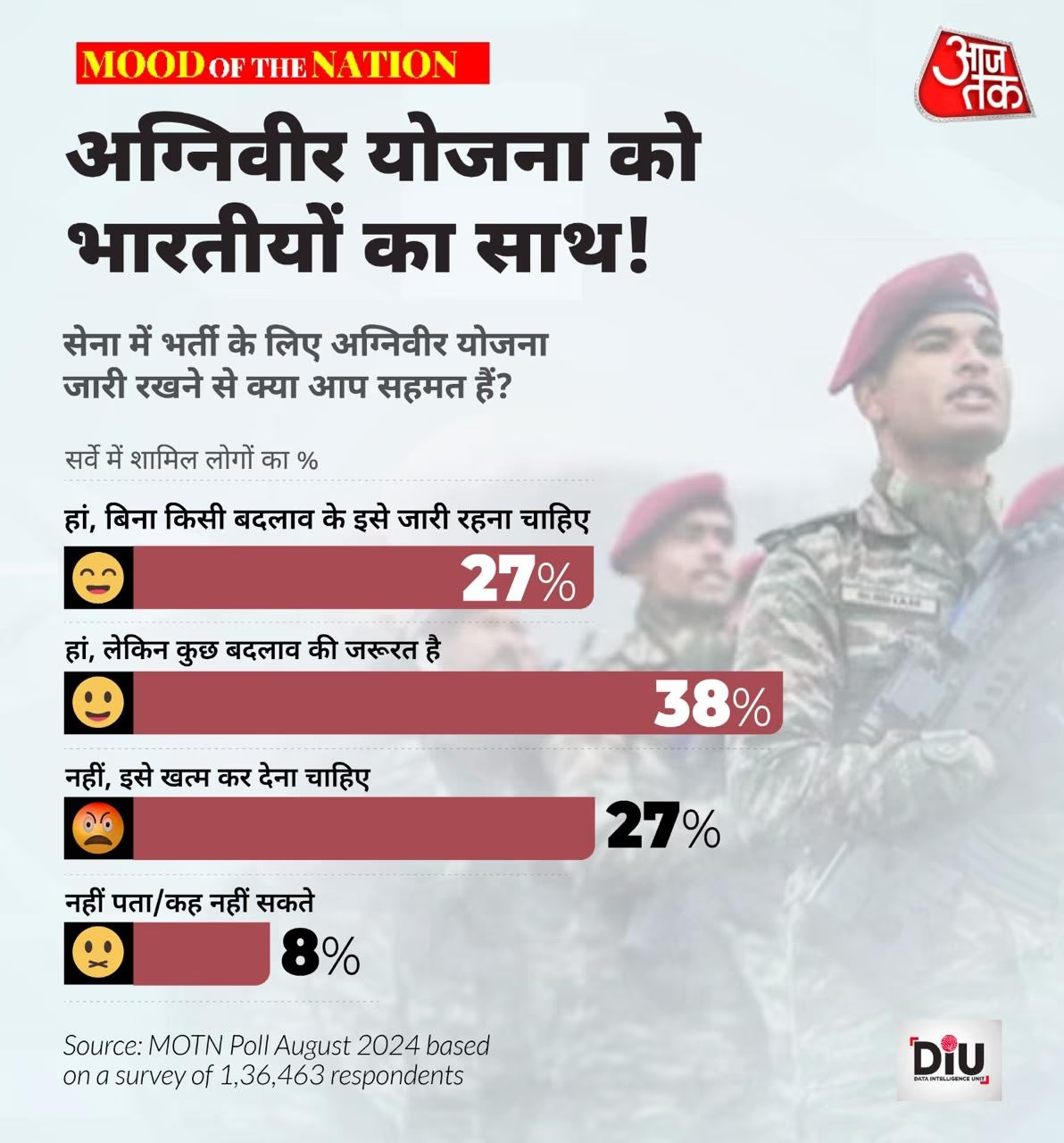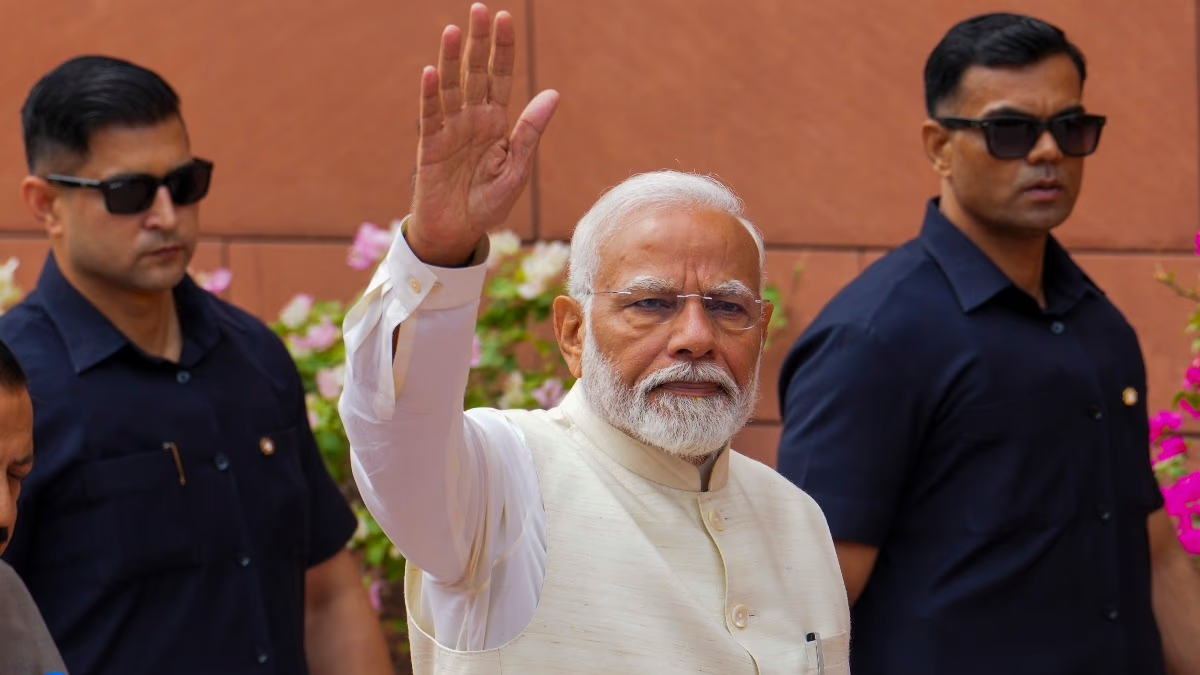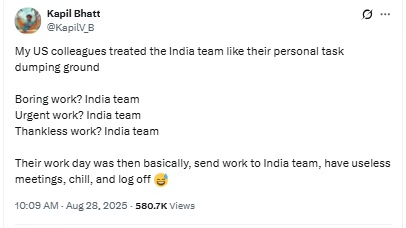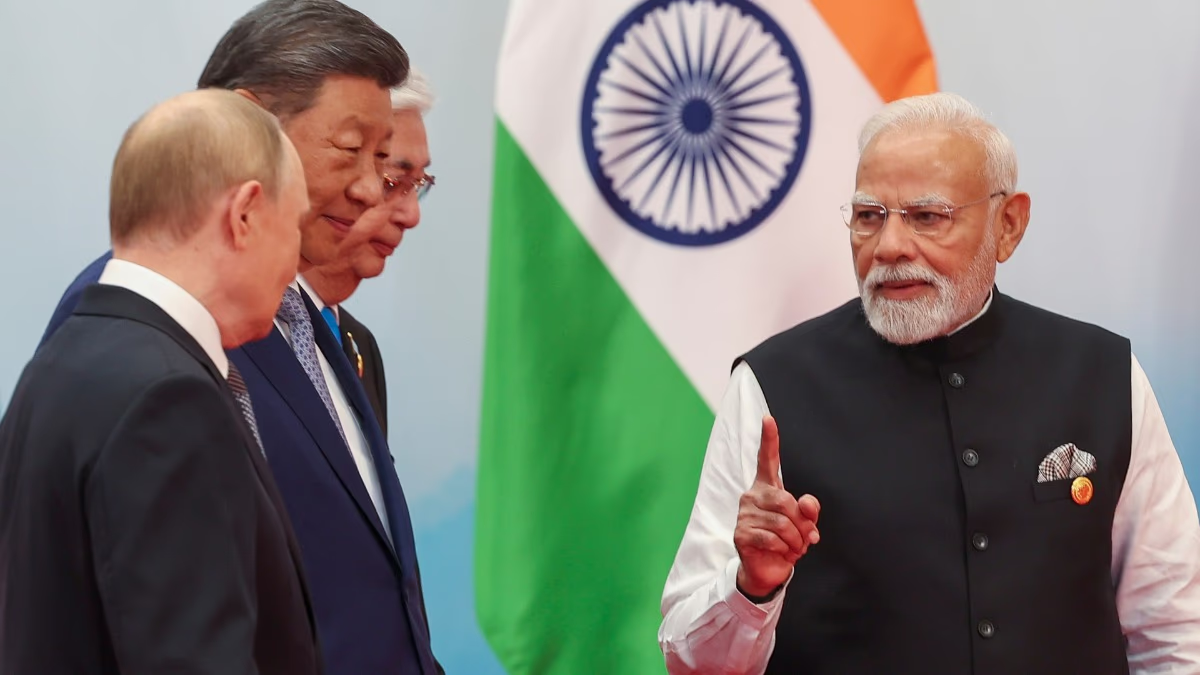The Modi government, coming to power for the third time with a slightly reduced majority, has made several surprising decisions. One of these decisions is the announcement of a new pension scheme. Last week, the Modi government approved a new pension scheme called the 'Unified Pension Scheme' or 'UPS.' This announcement comes at a time when employee unions and opposition parties have long been demanding the reinstatement of the old pension scheme (OPS). Currently, retirees receive their pensions under the National Pension Scheme (NPS), which has been in effect since January 2004.
The UPS provides for a fixed pension after retirement, unlike the NPS. Under the NPS, employees had to contribute 10% of their salary each month, with the government contributing 14%, which was invested in the stock market. The resulting pension amounted to a lump sum payment upon retirement. UPS, however, ensures a fixed pension every month and increases the government's contribution to 18.5%. Additionally, if an employee passes away, their family will continue to receive 60% of the pension monthly.
The opposition has raised questions about this announcement. Congress President Mallikarjun Kharge commented, 'The U in UPS stands for the Modi government's U-turn. After June 4th, the power of the people overshadowed the Prime Minister's arrogance in power.'
The opposition's criticism is not unfounded. The OPS has been a significant issue in Lok Sabha elections and state assembly elections. States where the Congress or opposition parties have come to power have reinstated the OPS. For instance, after the Congress government came to power in Himachal in 2022, the OPS was reinstated. Similarly, the Aam Aadmi Party government in Punjab also resumed the OPS.
Earlier this year, several trade unions met with Finance Minister Nirmala Sitharaman before the budget to demand the abolition of the NPS and reinstatement of the OPS. The UPS announcement was made just a week before the assembly election dates were announced for Jammu & Kashmir and Haryana. Elections are also scheduled in Maharashtra and Jharkhand later this year, and Delhi early next year, all states with a significant number of central government employees.
Is Legal Guarantee for MSP Next?
With the announcement of the UPS amid demands for the reinstatement of the old pension scheme, can farmers expect good news regarding the legal guarantee of MSP (Minimum Support Price)? MSP is a critical issue that could become a major problem for the government in the future. Farmers have long been demanding a legal guarantee for MSP, which ensures a minimum price for their crops. The demand for MSP's legal guarantee gained momentum when farmers launched a protest against three agriculture laws in November 2020. The government eventually repealed these laws after a year-long agitation, but the MSP issue remains unresolved.
The government has proposed several formulas regarding MSP, but farmers are unwilling to accept anything less than a legal guarantee. This demand led farmers to plan a march to Delhi in February this year. Farmers are still stationed at the Shambhu border.
Agricultural expert Devinder Sharma questioned, 'If employees can get a fixed pension every month, why can't farmers get a legally fixed MSP?' He drew parallels between UPS and MSP, stating, 'If market-linked pensions are not feasible for employees, why assume that market-linked prices will work for farmers?'
Considering the government's handling of the pension issue, there is hope that the MSP issue will also be resolved. In July 2022, the government formed a committee to work on MSP, which has held over three dozen meetings with farmer organizations. It is expected that a solution for the legal guarantee of MSP can be found, much like the pension issue.

Source: aajtak
Possible Changes in Agniveer Scheme?
In June 2022, the Agnipath scheme was introduced for recruitment in all three armed forces for four years. It recruits youths aged 17.5 to 21 years into the forces.
Ever since the Agnipath scheme was announced, it has been controversial. There were nationwide protests by youths when it was unveiled. The opposition has also criticized the government over Agniveer. The scheme even became a significant issue in the Lok Sabha elections.
The primary reason for the opposition to the Agniveer scheme is that 75% of the recruits will be retired after four years, with only 25% retained in the armed forces. These retired Agniveers are not guaranteed a pension.
However, it's also true that in the India Today Mood of the Nation survey, 65% of respondents supported the Agniveer scheme. Of these, 27% wanted the scheme to continue without changes, while 38% felt it should continue with some modifications.
Post the Lok Sabha elections, the government announced several concessions for Agniveers. These include a 10% reservation in paramilitary forces like BSF, CRPF, and CISF. Additionally, several state governments have promised reservations for Agniveers in police recruitment.
With the government's new pension scheme announcement and the committee working on MSP's legal guarantee, the question arises: Will the Modi government make changes to the Agniveer scheme to counter opposition criticism?
Awaiting Two Major Changes
The most anticipated changes in the Agniveer scheme include extending the tenure of Agniveers and increasing their chances of permanent retention in the forces. Extending the Agniveers' service tenure from four years could reduce opposition to the scheme. Another idea is to increase the retention rate beyond 25%, giving more Agniveers a permanent job, thus reducing their opposition to the scheme.




